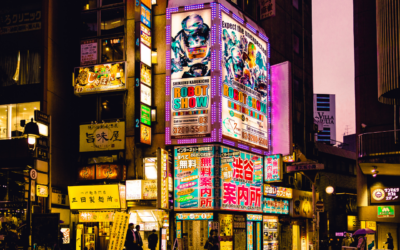The Symbiosis of Architecture and Signage
In the dynamic field of architecture, the integration of signage is crucial, not merely as an addition but as an intrinsic element that augments both functionality and aesthetic appeal. Effective signage within architectural design fulfills a variety of roles—from guiding visitors to reinforcing brand identity and enhancing user experience. Discover the ways architects can leverage the strategic use of signage to create spaces that are both visually engaging and intuitively user-friendly.
The Role of Signage in User Experience
For architects, integrating signage into the design process from the start provides a unique opportunity to shape user experiences. Effective signage systems deliver crucial information and guide visitors, enhancing accessibility and ease of navigation in complex environments such as healthcare facilities, educational campuses, and large corporate buildings. Well-conceived signage is key to reducing confusion and frustration, promoting a smoother interaction with the space, and heightening overall user satisfaction.
Enhancing Aesthetic Appeal with Integrated Signage
Beyond its functional aspect, signage contributes significantly to the aesthetic environment of a building. Collaborations between architects and signage designers allow for the creation of elements that reflect and complement the architectural style. Whether it’s incorporating sleek, minimalist signage in modern office buildings or elegant, ornate signs in luxury hotels, well-integrated signage can elevate a property’s visual and thematic narrative, making spaces memorable and cohesive.
Strategic Placement for Maximum Impact
The strategic positioning of signage plays a pivotal role in its effectiveness. Architects, with their deep understanding of space utilization and traffic patterns, are well-equipped to identify the most impactful locations for signage. This foresight in planning helps facilitate seamless movements and interactions, which is especially crucial in high-traffic environments such as shopping malls, airports, and sports arenas, where efficient navigation is paramount.
Incorporating Digital Technologies in Signage
The integration of digital technology into signage opens up new avenues for dynamic and adaptable communication within architectural spaces. Digital signage can provide real-time updates, interactive experiences, and adaptable content that responds to the specific needs of a building’s users. For example, digital wayfinding systems in complex facilities like airports can dramatically enhance the user experience by providing timely and easy-to-follow navigation aids that adjust to flight schedule changes and congestion in real-time.
Sustainable Practices in Architectural Signage
Sustainability is increasingly at the forefront of architectural design, and the choice of signage can reflect this commitment. By opting for materials and technologies that reduce environmental impact—such as energy-efficient LEDs and recycled materials—architects can enhance the sustainability of their projects. These choices not only support environmental goals but also resonate with a growing base of clients and users who prioritize green and sustainable practices.
Enhancing Architectural Design with Expert Signage Solutions
The thoughtful integration of signage is vital for architects striving to create functional, welcoming, and aesthetically pleasing spaces. Collaborating with a seasoned online business signage provider like Attention Getters can elevate the quality and impact of architectural designs, ensuring that every piece of signage not only serves its practical purpose but also enhances the building’s visual and functional harmony. For architects looking to integrate top-tier signage solutions that align with cutting-edge design and sustainability standards, partnering with Attention Getters offers a pathway to achieving these goals with expertise and innovation. Connect with us today and discover how your architectural visions can be transformed into realities with expertly crafted signage.




